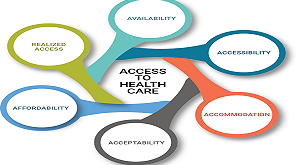The UK Health Care System, commonly referred to as the National Health Service (NHS), is a publicly funded healthcare system that provides comprehensive medical services to the residents of the United Kingdom. Established in 1948, the NHS is one of the largest and oldest single-payer healthcare systems in the world.
Funding:
The NHS is primarily funded through general taxation, with the majority of its budget allocated by the government. This means that healthcare services are provided free at the point of use, with patients not required to pay for most treatments, consultations, and surgeries. However, there are some charges for certain services such as prescription medications, dental care, and eye tests.
Services:
The NHS offers a wide range of healthcare services, including primary care provided by general practitioners (GPs), specialist care in hospitals, mental health services, emergency care, and public health initiatives. It also covers the cost of medical treatments, surgeries, and diagnostic tests. Additionally, the NHS provides maternity care, pediatric services, and end-of-life care.
Structure:
The NHS is structured into different components, including NHS England, NHS Scotland, NHS Wales, and Health and Social Care in Northern Ireland. Each component is responsible for the management and delivery of healthcare services within its respective region.
Primary Care:
Primary care is the first point of contact for most patients within the NHS. General practitioners (GPs) and community pharmacists provide primary care services, offering diagnosis, treatment, and referrals to specialist services when necessary.
Hospitals:
The NHS operates a network of hospitals and clinics, providing a wide range of medical services, including inpatient care, outpatient appointments, surgical procedures, and emergency care. Hospitals are equipped to handle complex medical conditions and offer specialized treatments.
Mental Health Services:
The NHS provides mental health services, including counseling, therapy, and psychiatric care, to support individuals with mental health conditions.
Public Health:
The NHS is also involved in public health initiatives, such as vaccination programs, health education, and disease prevention campaigns to improve the overall health of the population.
Private Healthcare:
In addition to the publicly funded NHS, there is a private healthcare sector in the UK. Private healthcare services are available for those who choose to pay for them, and some individuals may have private health insurance to cover the cost of private medical treatments.
Challenges:
The NHS faces challenges such as increasing demand for services, funding constraints, and workforce shortages. Efforts are ongoing to address these challenges and improve the efficiency and effectiveness of the healthcare system.
Overall, the UK Health Care System aims to provide high-quality, accessible healthcare to all residents, regardless of their ability to pay. The NHS is considered a cornerstone of the UK’s welfare state and a source of national pride.







